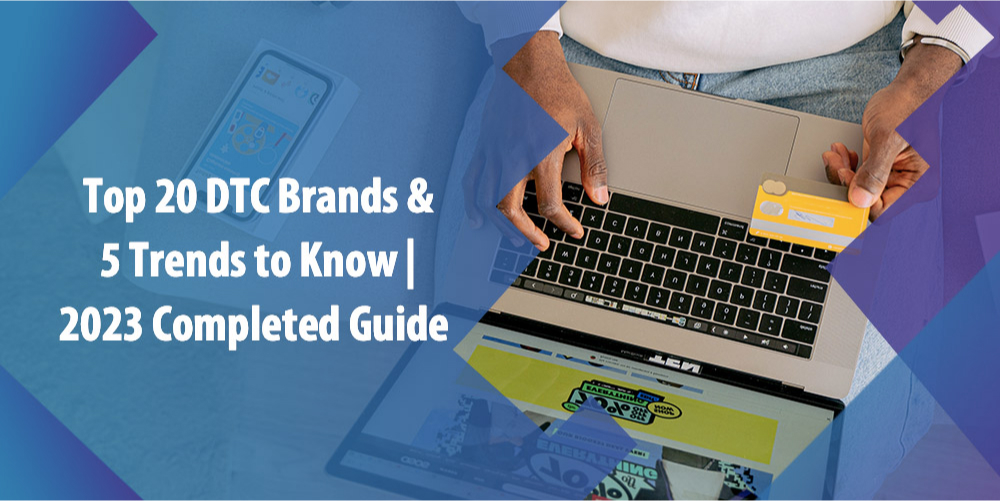The Basics of DTC Brands
Nowadays, DTC brands are growing at an unprecedented rate, as they offer a unique way of selling products directly to consumers, bypassing traditional retail channels. With the rise of e-commerce platforms and social media, DTC brands have become more accessible to consumers, allowing them to compete with established brands in various industries.
What Are DTC Brands?
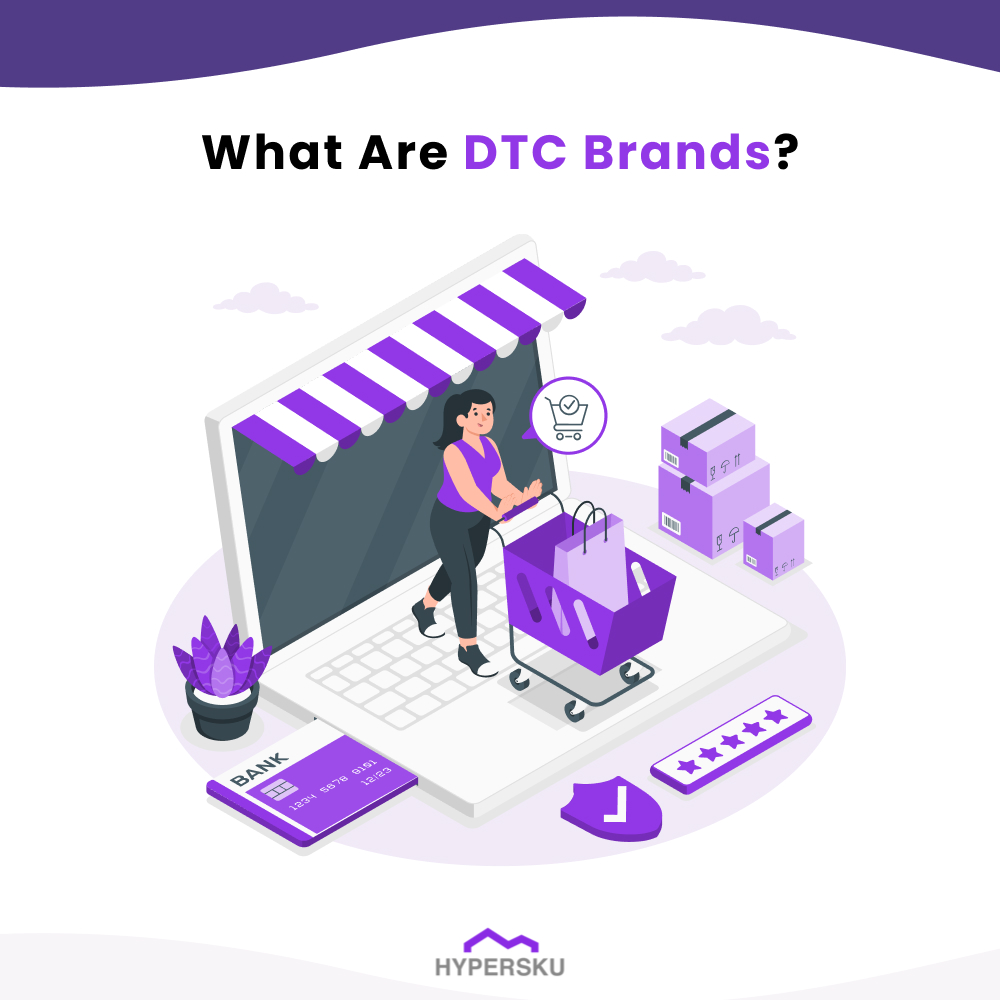
Direct-to-consumer brands, or “DTC brands” in short, are companies that sell their products or services directly to consumers through online channels rather than relying on intermediaries like wholesalers, retailers, or distributors. These brands are typically born in the digital age and leverage social media and e-commerce platforms to reach customers.
How Do DTC Brands Grow?
DTC brands grow by establishing a strong online presence and building a loyal customer base through effective marketing strategies. By selling directly to customers without a middleman, DTC brands can offer high-quality products at a lower cost while still making a profit. DTC brands can also leverage data to optimize their operations, allowing them to make informed decisions on product development, marketing, and other business operations.
What Are the Key Characteristics of DTC Brands?
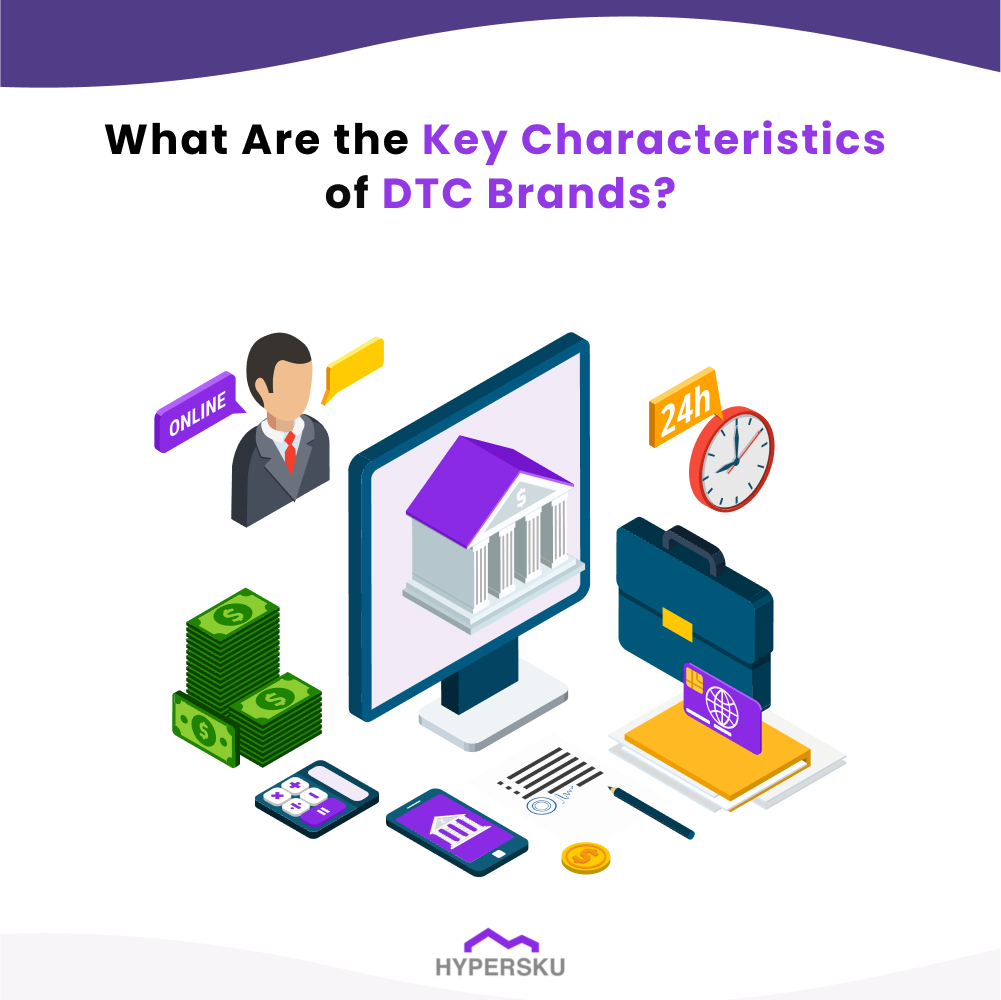
As DTC brands have emerged as a disruptive force, challenging the traditional retail industry by offering unique products, personalized customer experiences, and innovative marketing strategies, understanding the key characteristics of DTC brands is essential for businesses considering this model, as well as for consumers curious about this growing trend. Therefore further in this paragraph, we will investigate the defining traits of DTC brands and how they have transformed the retail landscape, paving the way for a new era of customer-centric and innovative business practices.
Bypassing Third-Party Retailers
One of the key characteristics of DTC brands is the elimination of middlemen in the supply chain. By selling directly to customers, DTC brands have greater control over their product offerings and are able to create customized products and services that cater to specific consumer needs and preferences. Additionally, DTC brands often offer a more affordable price point compared to traditional retail channels, as they are able to avoid the markups typically added by middlemen. This pricing strategy has proven to be particularly attractive to younger, price-conscious consumers who value affordability and transparency in their purchasing decisions.
Emphasis on Customer Experience
Another characteristic of DTC brands is the emphasis on customer experience. DTC brands have a direct line of communication with their customers, allowing them to gather valuable feedback and insights. This information is then used to inform decisions and create a more personalized and engaging customer experience.
DTC brands often prioritize customer service and support, offering fast and responsive communication channels such as live chat, social media, and email. This focus on customer experience has helped DTC brands build a loyal following and establish a strong brand identity in a crowded marketplace.
Use of Data to Inform Decisions
DTC brands are known for their data-driven approach, which allows them to make strategic decisions that lead to sustainable growth and success. By analyzing customer behavior and feedback, DTC brands can develop targeted marketing campaigns that are personalized and relevant to their customer base. This leads to higher engagement and conversion rates, ultimately driving revenue and customer loyalty.
On top of marketing, DTC brands also use data to optimize their supply chain and inventory management processes. By tracking inventory levels and demand, they can reduce waste and improve their operational efficiency. This enables them to offer faster delivery times and better customer service, further enhancing the overall customer experience.
The use of data allows DTC brands to stay agile and quickly adapt to changing trends and consumer preferences. This is especially important in today’s fast-paced marketplace where consumer expectations are constantly evolving. By staying ahead of the curve, DTC brands can remain relevant and competitive, driving continued growth and success. Overall, the use of data is a key characteristic of DTC brands, enabling them to make informed decisions that drive their business forward.
Vertical Integration of Operations
DTC brands are known for their vertical integration of operations, which refers to the practice of controlling various aspects of their supply chain in-house. This includes activities such as product design, manufacturing, distribution, and marketing. By having greater control over these processes, DTC brands can ensure that their products meet the highest quality standards and maintain consistency across their brand.
For example, many DTC brands invest heavily in designing and producing their products in-house or through trusted partners. This allows them to have greater control over the production process and ensure that the end product meets their quality standards. Additionally, DTC brands may also own their own distribution channels, such as e-commerce websites or physical retail locations. By controlling their distribution channels, DTC brands can reduce their reliance on third-party retailers and have more direct access to their customers.
Focus on Social Media Marketing
Social media marketing has become a vital aspect of DTC brand strategies in recent years. DTC brands can effectively engage with customers by utilizing social media platforms like Instagram, Facebook, TikTok, and Twitter. Through these platforms, DTC brands can create a community around their brand, build relationships with customers, and promote their products or services to a wider audience.
Social media platforms provide an opportunity for DTC brands to showcase their brand identity and values, creating an authentic and personalized connection with their customers. DTC brands can leverage social media to showcase their unique brand story, product offerings, and customer testimonials to build trust and credibility with their target audience.
Moreover, social media platforms provide DTC brands with a wealth of data that can inform marketing decisions. Through social media analytics, DTC brands can gain insights into their audience demographics, content engagement, and customer sentiment. This data can be used to optimize marketing campaigns, improve customer experience, and inform product development.
How to Become Top DTC Brands
DTC brands are believed to have disrupted traditional retail channels by offering customers a more direct connection to businesses. As the DTC market continues to grow, it is important for businesses to anticipate upcoming trends and develop effective strategies to become top DTC brands.
What Are DTC Trends in 2023?
As we look ahead to 2023, it’s worth examining some of the potential trends that could shape the DTC landscape. From sustainable and eco-friendly products to augmented reality (AR) and virtual reality (VR) shopping experiences, DTC brands are constantly exploring new ways to engage with customers and maintain a competitive edge. Later in this paragraph, we will explore some of the DTC trends that could emerge in 2023 and how they could impact the retail industry as a whole.
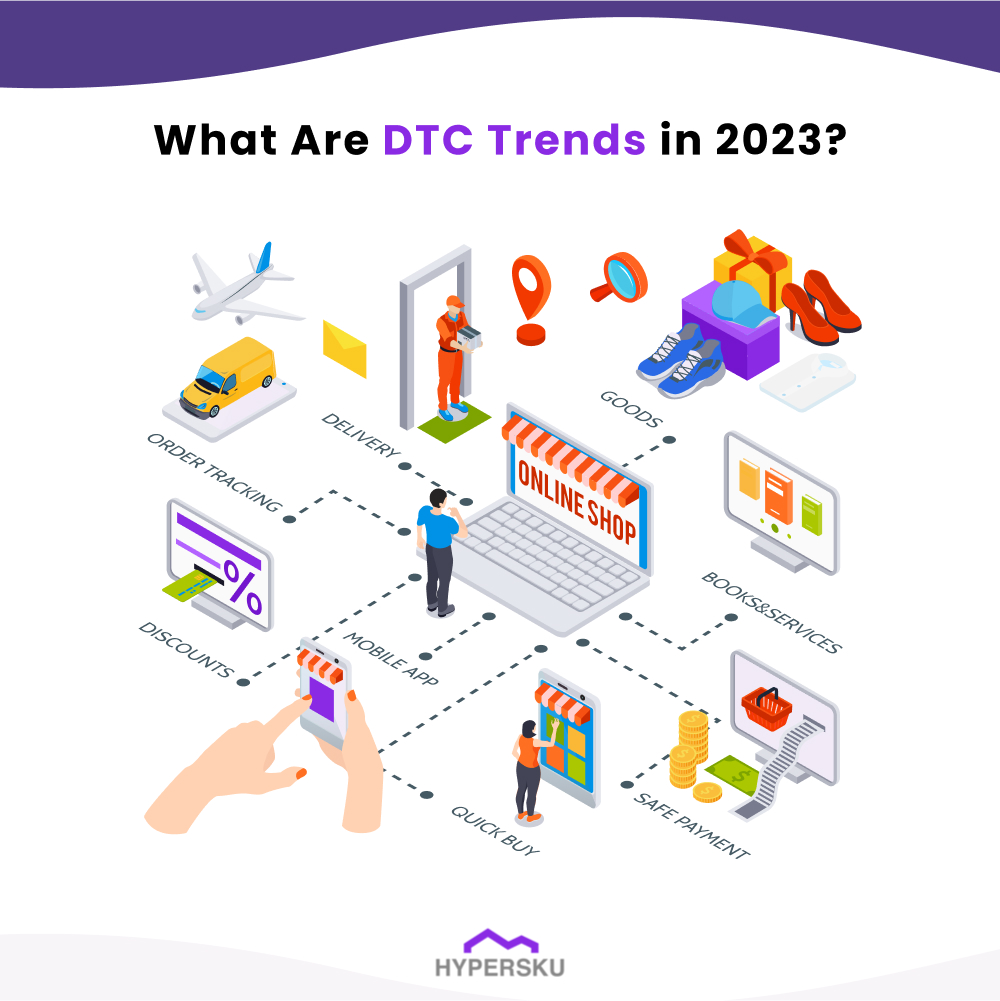
Trend 1. Sustainable and Eco-Friendly Products
With growing awareness of environmental issues, DTC brands may increasingly focus on offering sustainable and eco-friendly products. This could include using recyclable packaging, reducing carbon emissions, and implementing ethical sourcing practices.
Trend 2: Augmented Reality (AR) and Virtual Reality (VR)
DTC brands may leverage AR and VR technologies to create immersive shopping experiences for customers. This could include virtual product try-on, interactive product demos, and virtual showrooms.
Trend 3: Social Commerce
Social media platforms like Instagram and Facebook are becoming increasingly popular for shopping, and DTC brands may continue to invest in social commerce strategies. This could involve using social media influencers to promote products, creating shoppable posts, and implementing social commerce features like “Buy Now” buttons.
Trend 4: Subscription Services
DTC brands may continue to offer subscription-based models, where customers receive recurring shipments of products on a regular basis. This can create a more predictable revenue stream for the brand and offer convenience for customers.
Trend 5: Personalization
DTC brands may continue to prioritize personalized customer experiences, using data analytics and artificial intelligence (AI) to offer tailored recommendations and product offerings. This can help build brand loyalty and increase customer satisfaction.
What is the DTC Brand Strategy Which Can Help Your Business Grow?
To become a top DTC brand, businesses must develop a comprehensive strategy that incorporates these emerging trends. Here are seven key components of a successful DTC brand strategy:
Focus on Your Customer
Successful DTC brands prioritize their customers’ needs and preferences. By gathering customer feedback and data, businesses can better understand their target audience and develop products and services that meet their needs.
Develop a Strong Brand Identity
A strong brand identity is crucial for standing out in a crowded marketplace. DTC brands should focus on developing a unique brand voice, aesthetic, and messaging that resonates with their target audience.
Leverage Social Media
Social media is a powerful tool for reaching a wider audience and engaging with customers. DTC brands should use social media platforms like Instagram, Facebook, and TikTok to demonstrate their products and connect with customers in an authentic and personal way.
Offer a Seamless Customer Experience
A seamless customer experience is key to retaining customers and building brand loyalty. DTC brands should prioritize user experience (UX) design and invest in technology that streamlines the purchasing process.
Personalize Your Marketing
Personalized marketing means adjusting marketing strategies to meet the needs of individual customers. By using data and AI, DTC brands can create targeted marketing campaigns that are more relevant and effective.
Emphasize Sustainability
As consumers become more environmentally conscious, sustainability is becoming an increasingly important factor in purchasing decisions. DTC brands should prioritize eco-friendliness in their operations, from product sourcing to packaging and shipping.
Build a Community
Building a community of loyal customers can be a powerful tool for driving brand awareness and growth. DTC brands should foster a sense of community through social media engagement, exclusive content, and events.
Direct-To-Consumer Statistics: How Big is the DTC Market?
According to the data provided by Statista, the direct-to-consumer (D2C) e-commerce market in the United States is set to witness significant growth in the forthcoming year. It is estimated that sales in this sector will soar to $212.9 billion by 2024, marking a 16.6% increase from the previous year. Although D2C sales will only account for 2.5% of total retail sales, according to the data provided by eMarketer, these brands have made significant strides in diversifying the consumer experience, disrupting traditional retail practices along the way.
The growth of the DTC market has been fueled by several factors, including advancements in e-commerce technology, the increasing availability of online marketplaces, and the changing preferences of younger generations. Millennials and Gen Z consumers, in particular, are more likely to prioritize convenience, personalization, and sustainability when making purchase decisions. This has led to a surge in demand for DTC products, as these brands often offer a more seamless and personalized shopping experience, as well as a greater emphasis on sustainable and ethical production practices.
Moreover, the COVID-19 pandemic has also accelerated the growth of the DTC market, as consumers turned to online shopping in unprecedented numbers due to lockdowns and social distancing measures. With traditional brick-and-mortar retailers forced to close their doors or limit in-person shopping, DTC brands were uniquely positioned to meet the needs of consumers looking for fast and reliable delivery of high-quality products.
What Are the Best DTC Brands?
As DTC brands continue to gain popularity, consumers have more options than ever before when it comes to shopping for goods. With so many candidates available, it can be challenging to navigate the market and determine which brands are worth the time and money. That is why we will explore some of the best DTC brands across various industries, taking a closer look at what sets them apart and why they have become favorites among consumers in this paragraph.
Whether you’re looking for high-quality products, exceptional customer service, or an engaging brand experience, we’ve got you covered.
Fashion & Styling DTC Brands
Stitch Fix
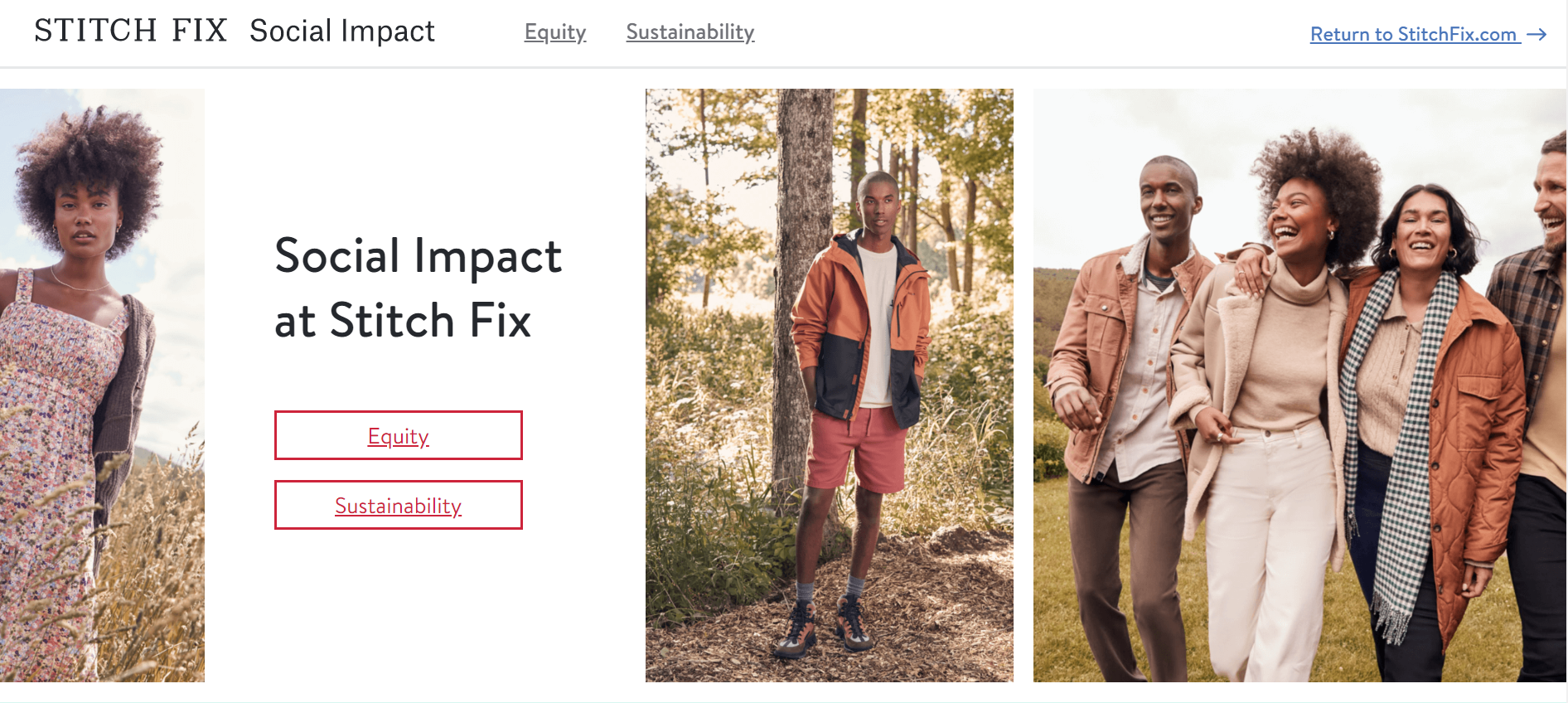
- Year Founded: 2011
- Product Category: Clothing subscription service
- What this company is about: Stitch Fix is an online styling service that uses personal styling algorithms and data to help customers find clothing that fits their personal style and body shape. Customers fill out a detailed style profile, and a stylist selects items for them to try on at home. Customers keep what they like and return the rest.
- Key to Success: Stitch Fix has been successful due to its innovative use of technology and data to personalize the shopping experience for customers. The company has also been successful in building a community of loyal customers who appreciate the convenience and personalization of the service.
Mvmt Watches
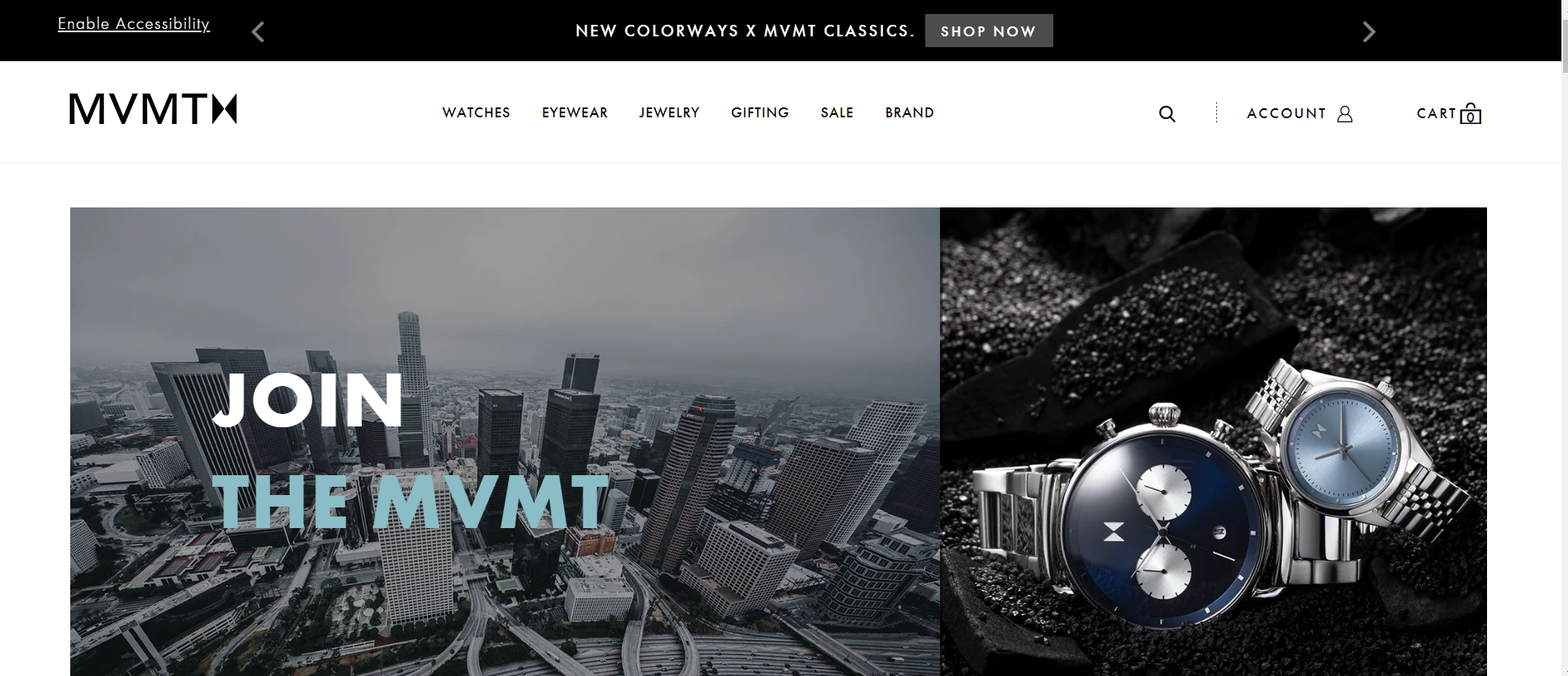
- Year Founded: 2013
- Product Category: Watches and accessories
- What this company is about: Mvmt Watches is a DTC brand that offers stylish and affordable watches and accessories. The company’s mission is to provide high-quality, minimalist watches at an accessible price point.
- Key to Success: Mvmt Watches has been successful in creating a strong brand identity and leveraging social media to reach a wide audience. The company has also been successful in offering high-quality products at an affordable price point, making its products accessible to a wider range of consumers.
Glossier
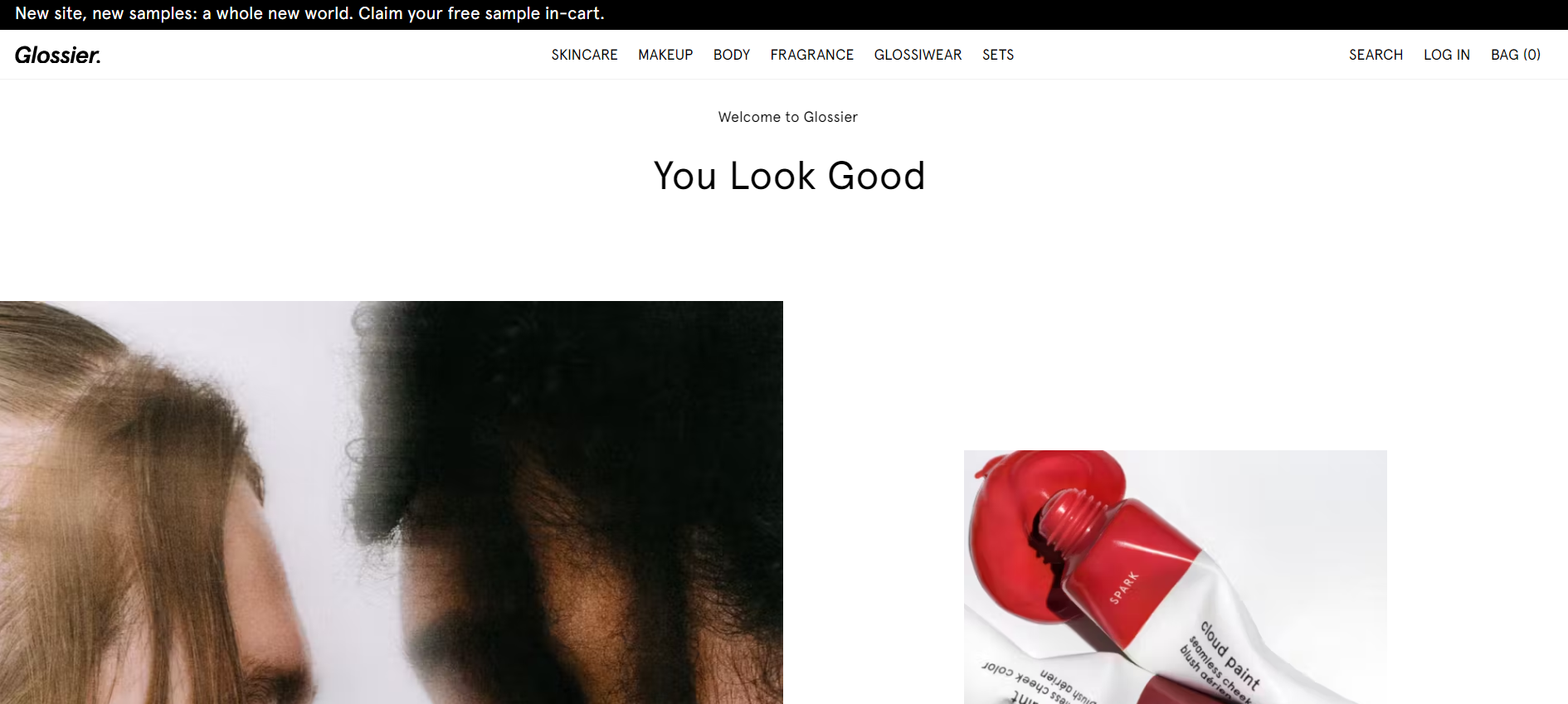
- Year Founded: 2014
- Product Category: Skincare and beauty
- What this company is about: Glossier is a DTC brand that offers a range of skincare and beauty products. The company’s mission is to create a community-driven beauty brand that celebrates individuality and inclusivity.
- Key to Success: Glossier has achieved a triumph in cultivating a committed customer base of patrons who value the brand’s emphasis on diversity and unity. Additionally, the company has adeptly leveraged social media to establish connections with customers and generate enthusiasm for its products.
J.Hilburn
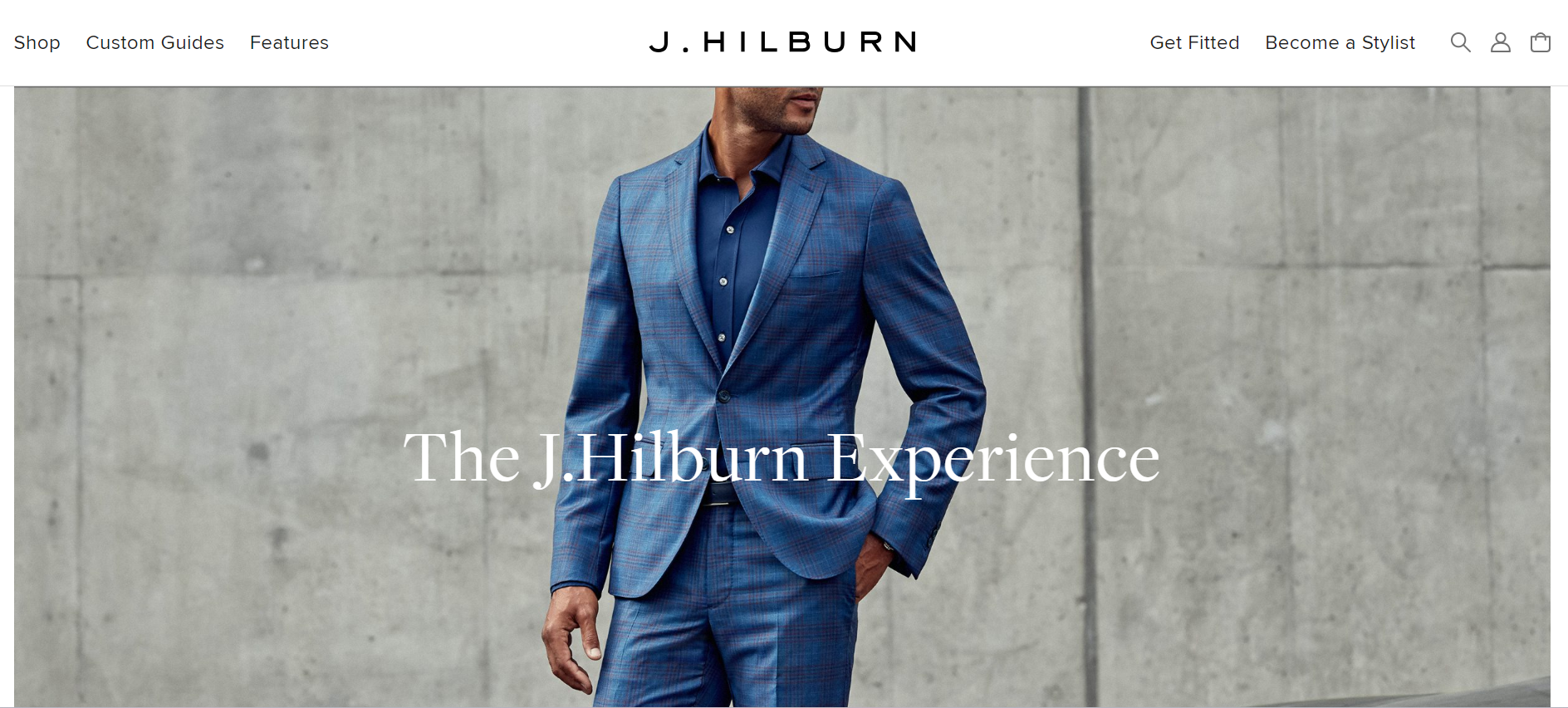
- Year Founded: 2007
- Product Category: Custom menswear
- What the company is about: J.Hilburn is a DTC brand that offers custom menswear, including shirts, suits, and pants. The company’s mission is to provide high-quality, personalized menswear at an accessible price point.
- Key to Success: J.Hilburn has been successful in offering high-quality, custom menswear at an accessible price point. The company has also been successful in building a community of loyal customers who appreciate the personalized shopping experience.
Footwear DTC Brands
Allbirds
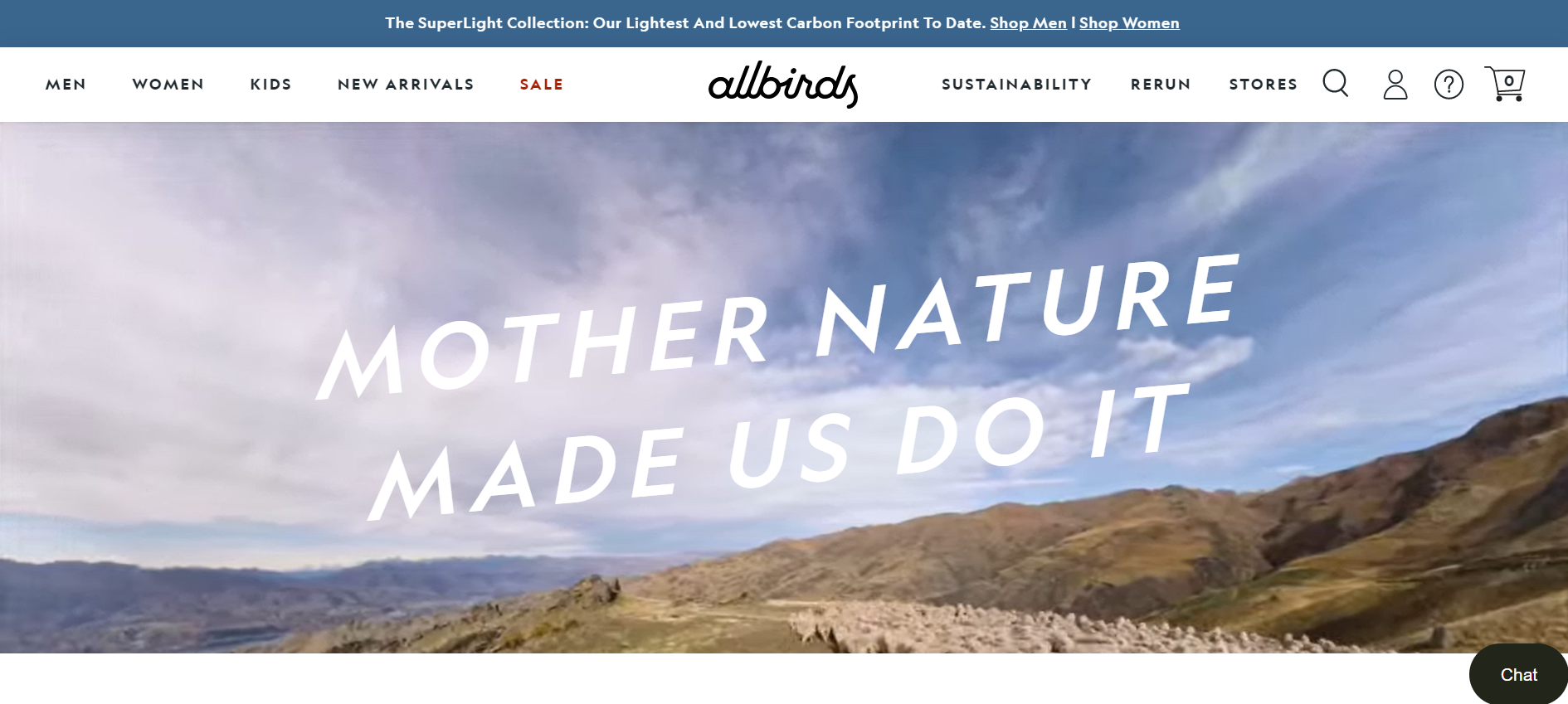
- Year Founded: 2016
- Product Category: Sustainable footwear
- What the company is about: Allbirds is a DTC brand that offers sustainable footwear made from eco-friendly materials like wool and eucalyptus. The company’s mission is to create comfortable, sustainable footwear while reducing its carbon footprint.
- Key to Success: Allbirds has been successful in creating a strong brand identity centered around sustainability and comfort. The company has also been successful in leveraging social media to connect with customers and create a buzz around its products.
Bombas
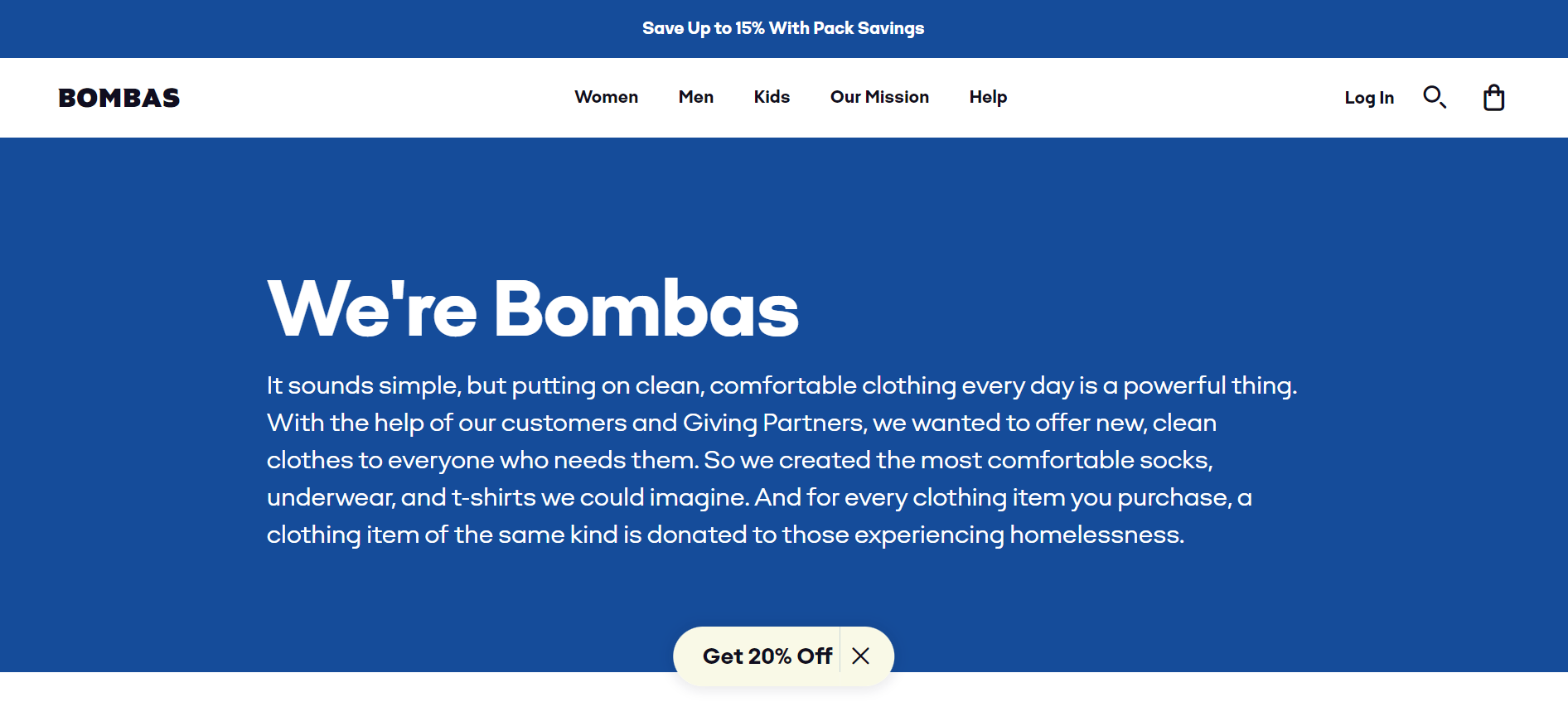
- Year Founded: 2013
- Product Category: Footwear
- What the company is about: Bombas is a sock and footwear brand that prioritizes comfort, style, and social responsibility. The company donates a pair of socks to homeless shelters for every pair purchased, and has donated over 50 million pairs to date. They have a variety of sock styles, including athletic, dress, and casual, and also offer sneakers and boots.
- Key to Success: Bombas has established a great amount of robust supporters by virtue of its philanthropic cause and devotion to comfort and excellence. Their distinctive one-to-one charitable donation model has struck a chord with customers who seek to make a constructive contribution through their purchases. Furthermore, the brand has been commended for the coziness and sturdiness of its socks and footwear.
Jack Erwin
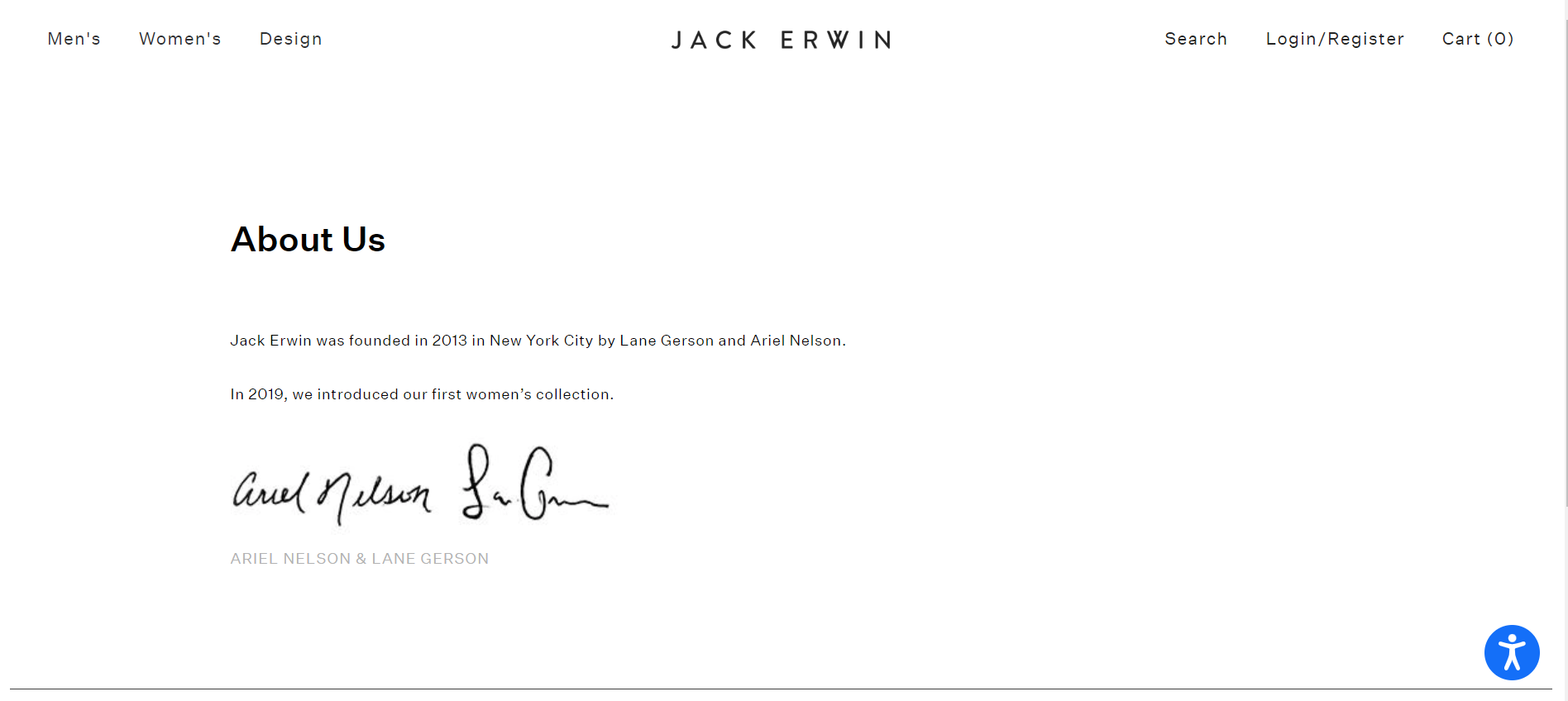
- Year Founded: 2013
- Product Category: Footwear
- What the company is about: Jack Erwin is a men’s footwear brand that aims to provide high-quality, timeless shoes at an affordable price. They offer a variety of shoe styles, from dress shoes to sneakers, all made with high-quality materials like Italian leather.
- Key to Success: Jack Erwin has captured the attention of fashion-conscious men who value quality and style without overspending. The brand’s emphasis on utilizing superior materials and expert craftsmanship has earned them accolades from satisfied customers. In addition, their direct-to-consumer business approach has enabled them to provide their shoes at a more reasonable cost than established luxury brands.
GREATS
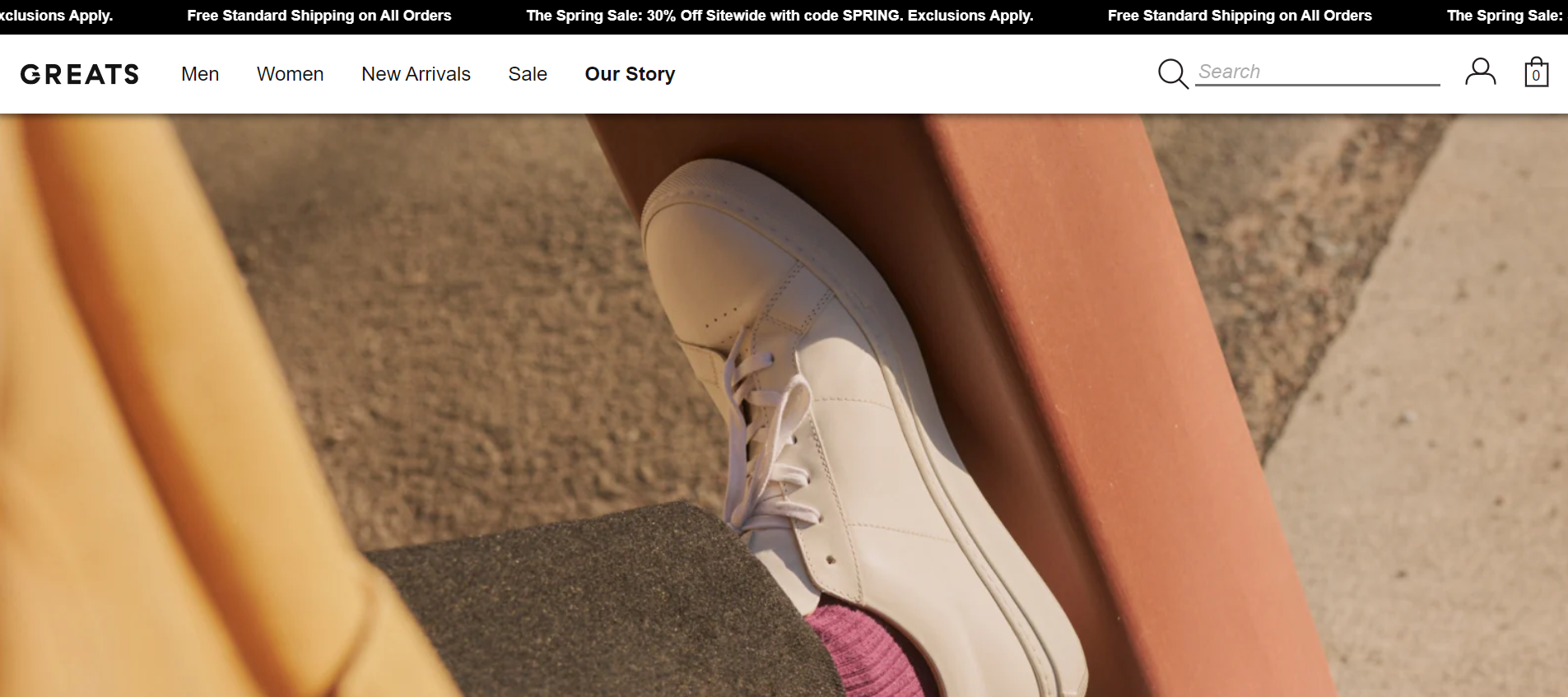
- Year Founded: 2013
- Product Category: Footwear
- What the company is about: GREATS is a footwear brand that offers a variety of sneaker styles for men and women. They aim to provide high-quality, stylish sneakers at an accessible price point and also prioritize sustainable and ethical production practices.
- Key to Success: GREATS has garnered a devoted fanbase by upholding quality, trendiness, and sustainability in their products. The brand’s direct-to-consumer business model has made their shoes more affordable compared to conventional luxury sneaker brands. Besides, the utilization of environmentally friendly materials and sustainable production techniques has appealed to individuals who prioritize ethical fashion. Moreover, the brand has been lauded for the comfort and long-lasting nature of its sneakers.
Home Product DTC Brands
Casper

- Year Founded: 2014
- Product Category: Mattresses, bedding, furniture
- What the company is about: Casper is a DTC brand that offers a range of sleep products, including mattresses, bedding, and furniture. The company’s mission is to improve the way people sleep by providing high-quality, comfortable products. Casper’s products are designed to cater to the customer’s needs and preferences, with a range of options available to suit different sleep styles and preferences.
- Key to Success: Casper’s success can be attributed to its innovative approach to sleep products. The company’s mattresses are designed with multiple layers of foam, providing comfort and support. Casper also offers a range of sleep accessories, such as pillows and sheets, which are made with high-quality materials. Additionally, Casper’s marketing strategy focuses on creating a unique and memorable brand experience for customers with engaging social media campaigns and experiential retail locations.
Burrow
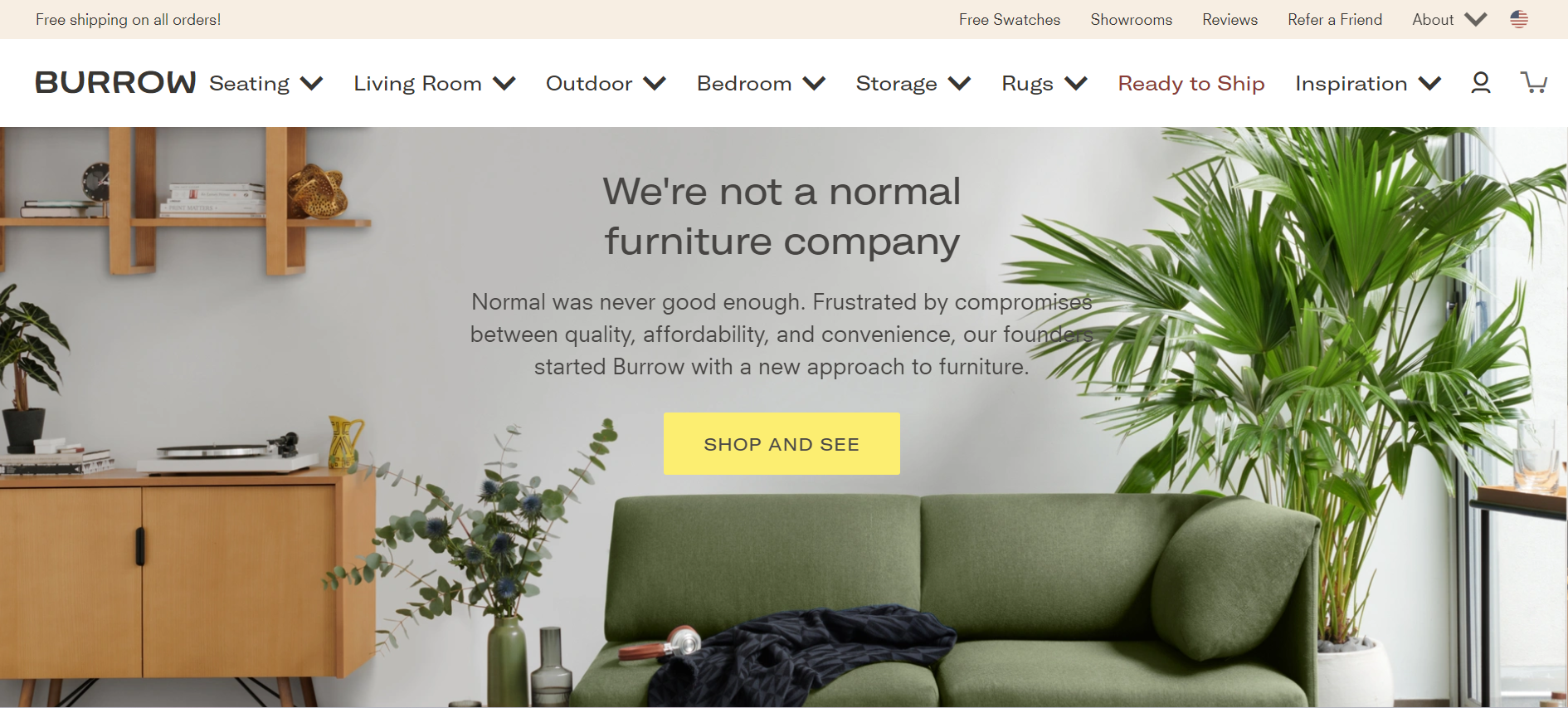
- Year Founded: 2016
- Product Category: Furniture
- What the company is about: Burrow is a DTC furniture brand that offers modular, customizable furniture that is easy to assemble and move. The company’s mission is to make high-quality, stylish furniture accessible to everyone. Burrow’s products are designed with convenience and versatility in mind, allowing customers to easily change the configuration of their furniture as needed.
- Key to Success: Burrow’s success can be attributed to its unique approach to furniture design and distribution. The company’s furniture is made with high-quality materials and designed to be easy to assemble and disassemble, making it convenient for customers to move and transport. Burrow’s direct-to-consumer model also allows the company to offer high-quality furniture at an affordable price point, without the markups associated with traditional furniture retailers.
Swoon
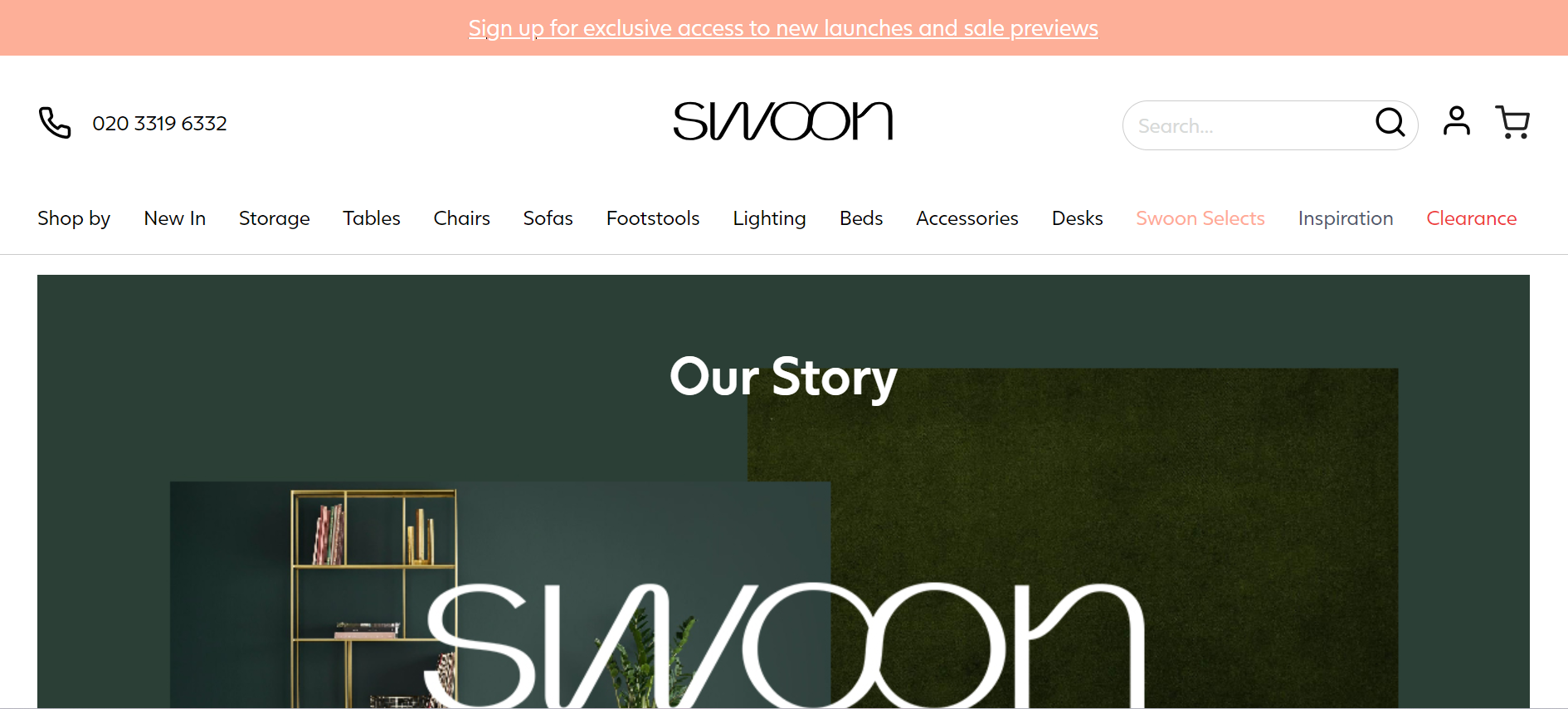
- Year Founded: 2012
- Product Category: Home Furnishings
- What the company is about: Swoon is a UK-based DTC furniture brand that designs and sells stylish and affordable furniture. The company collaborates with independent designers and craftsmen to create unique and high-quality pieces that are made to last. Swoon operates on a pre-order model, which allows them to reduce waste and offer lower prices to their customers.
- Key to Success: Swoon has revolutionized the conventional furniture industry by providing top-notch and distinctive furniture that is within reach of a broader audience. Through partnerships with freelance designers and artisans, Swoon is able to present an extensive array of styles and designs. The brand’s pre-order approach has also enabled them to diminish waste and provide economical rates to their patrons, thereby cultivating a devoted customer base. Swoon has furthermore emphasized creating an effortless customer journey, from the inception of the design to the delivery and installation of the furniture.
Eve Sleep
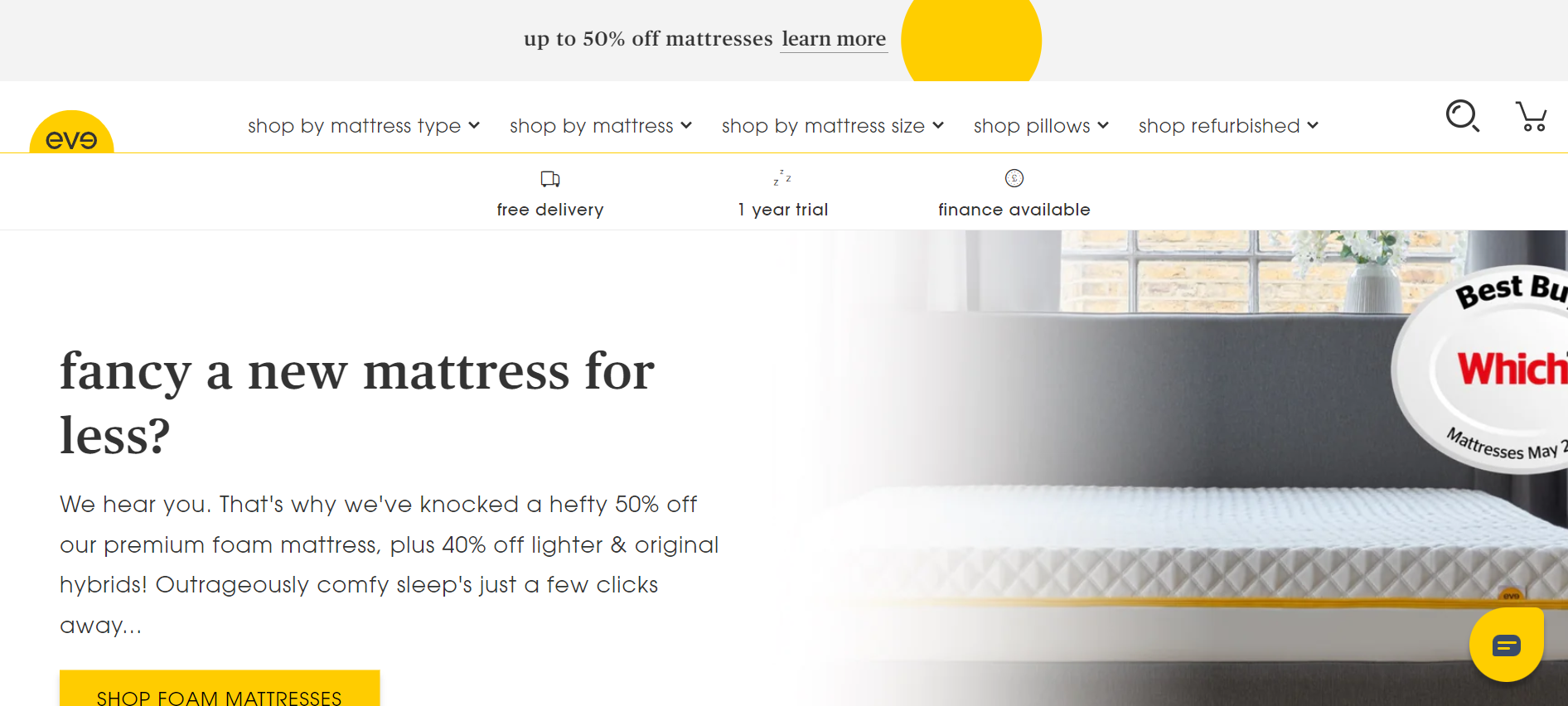
- Year Founded: 2014
- Product Category: Mattresses and Bedding
- What the company is about: Eve Sleep is a UK-based DTC brand that specializes in mattresses and bedding. The company’s mission is to help people get a better night’s sleep by offering high-quality, comfortable, and affordable products. Eve Sleep offers a range of mattresses, pillows, sheets, and other bedding accessories, all of which are designed to promote better sleep.
- Key to Success: Eve Sleep has disrupted the traditional mattress industry by offering high-quality and affordable mattresses that are delivered directly to customers’ doors. The company has focused on creating a seamless customer experience, from the design process to delivery and setup. On top of that, Eve Sleep’s pioneering memory foam mattress, delivered in a box, molds to the body’s contours for maximum comfort and regulates heat buildup for a refreshing slumber, making it a groundbreaking addition to the market and further making Eve Sleep a popular choice for people looking to improve their sleep.
Travel & Outdoor Product DTC Brands
Tonal
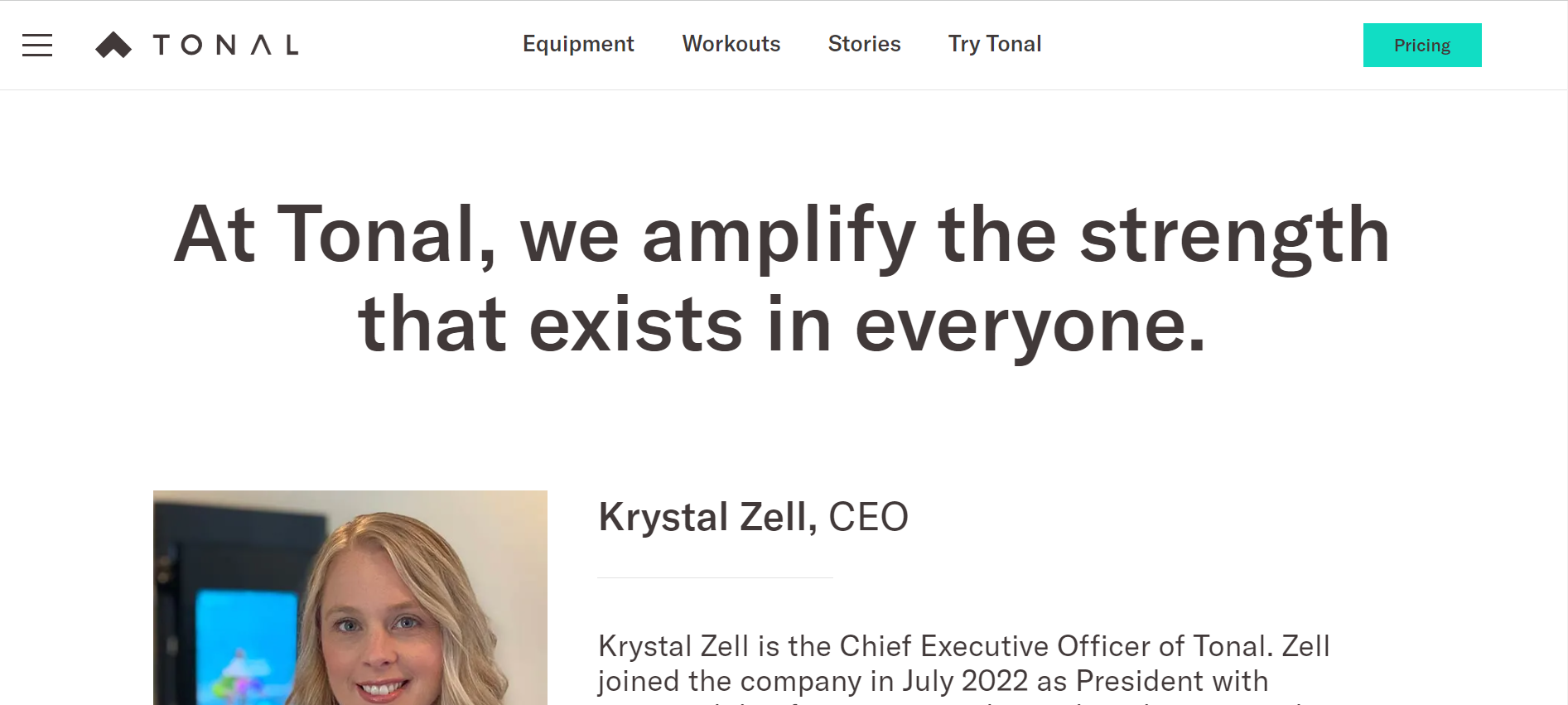
- Year Founded: 2015
- Product Category: Fitness Equipment
- What the company is about: Tonal is a company that sells a modern gym system directly to consumers, which incorporates digital weights and personalized instruction to assist people in achieving their fitness goals. The Tonal gym equipment includes a wall-mounted device that imitates traditional strength training exercises using digital weights, as well as a touchscreen display that provides individualized workout plans and coaching.
- Key to Success: Tonal has disrupted the traditional gym industry by offering a high-tech and personalized home gym system. The company’s focus on digital weights and personalized coaching allows users to achieve their fitness goals in a more efficient and effective way. Tonal’s sleek design and easy-to-use interface have also helped make it a popular choice for people looking for a convenient and effective workout solution.
Lume Cube
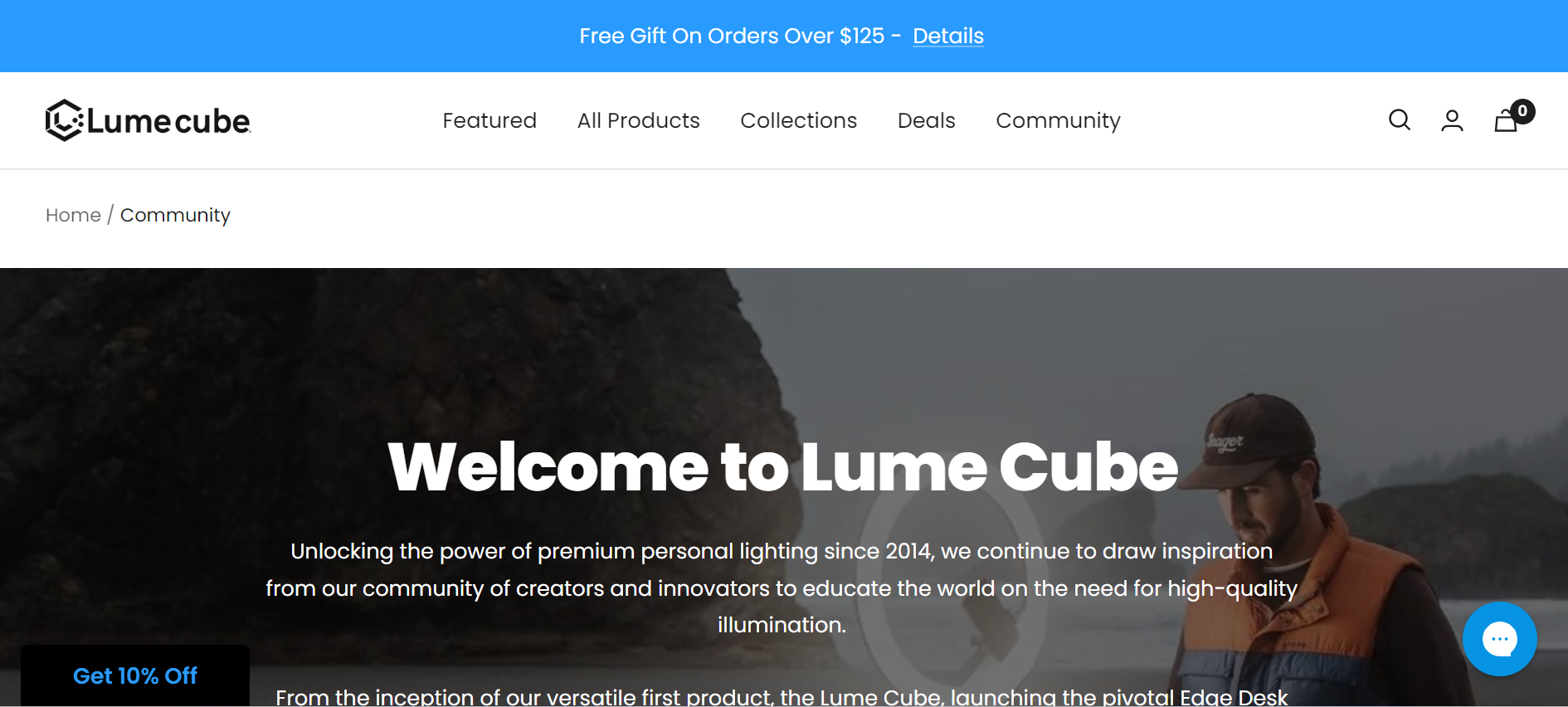
- Year Founded: 2014
- Product Category: Lighting Equipment
- What the company is about: Lume Cube is a DTC brand that offers high-quality, portable lighting equipment for photography and videography. The company’s products include small, portable LED lights that can be used to enhance the lighting of photos and videos, as well as underwater lighting equipment.
- Key to Success: Lume Cube has disrupted the traditional photography and videography industry by offering high-quality and portable lighting equipment that can be used in a variety of settings. The company’s products are easy to use and can be controlled through a smartphone app, which has helped make them a popular choice for both professional and amateur photographers and videographers. Lume Cube’s focus on innovation and product quality has helped them gain a loyal following in the industry.
Tortuga
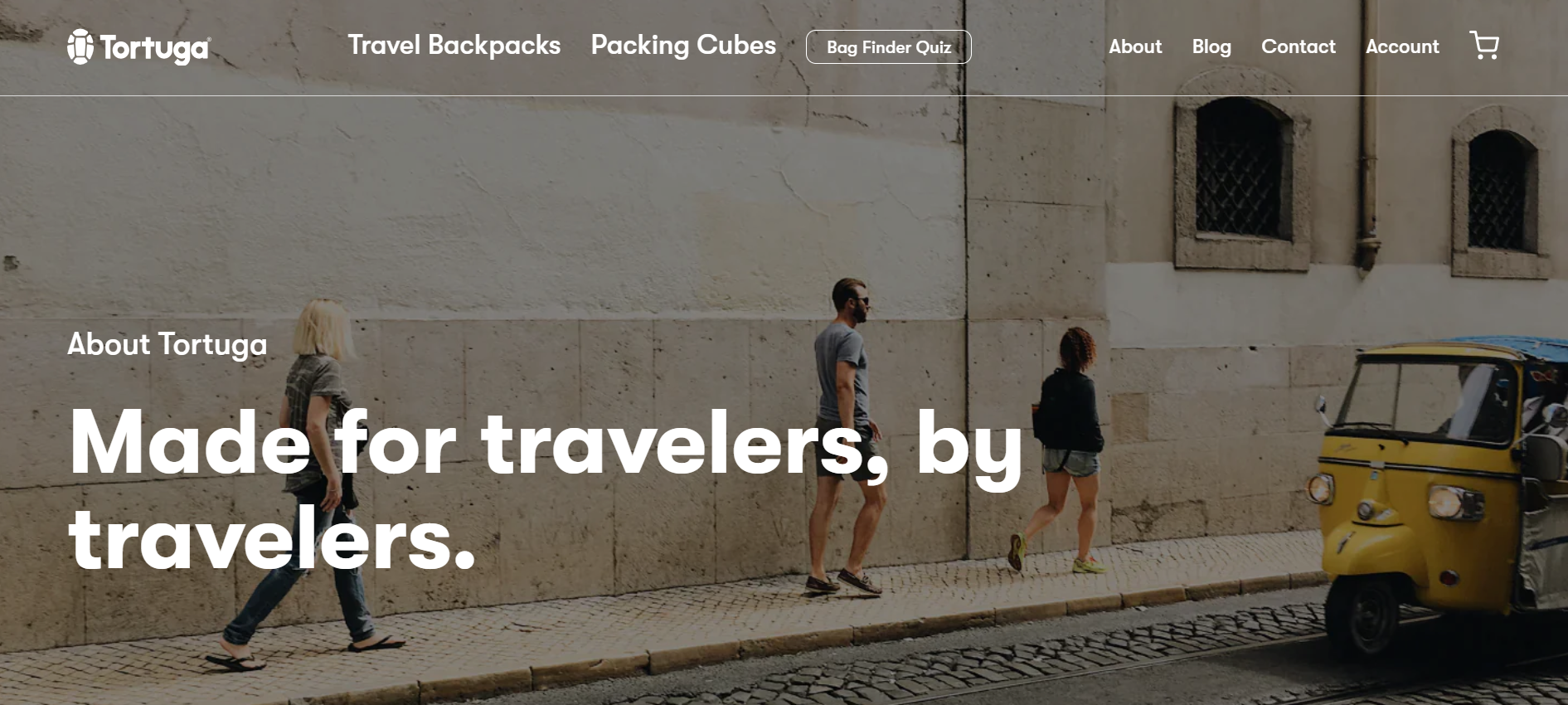
- Year Founded: 2010
- Product Category: Travel gear
- What the company is about: Tortuga is a DTC brand that offers backpacks and other travel gear. The company’s mission is to make it easier for people to travel with the right gear, and to reduce the stress that can come with packing and carrying everything needed for a trip. Tortuga’s products are designed to be functional, durable, and stylish, with features like multiple pockets, compression straps, and padded straps for comfort.
- Key to Success: Tortuga has been successful in part because of its focus on customer needs and satisfaction. The company has a strong reputation for customer service, with a generous return policy and a team that is responsive to customer questions and concerns. Tortuga has also been successful in building a community of travelers through its blog, which offers tips and advice for travel and packing, as well as through its social media presence. Additionally, the company has received positive reviews from customers and publications, further boosting its reputation and visibility in the travel gear market.
Floyd
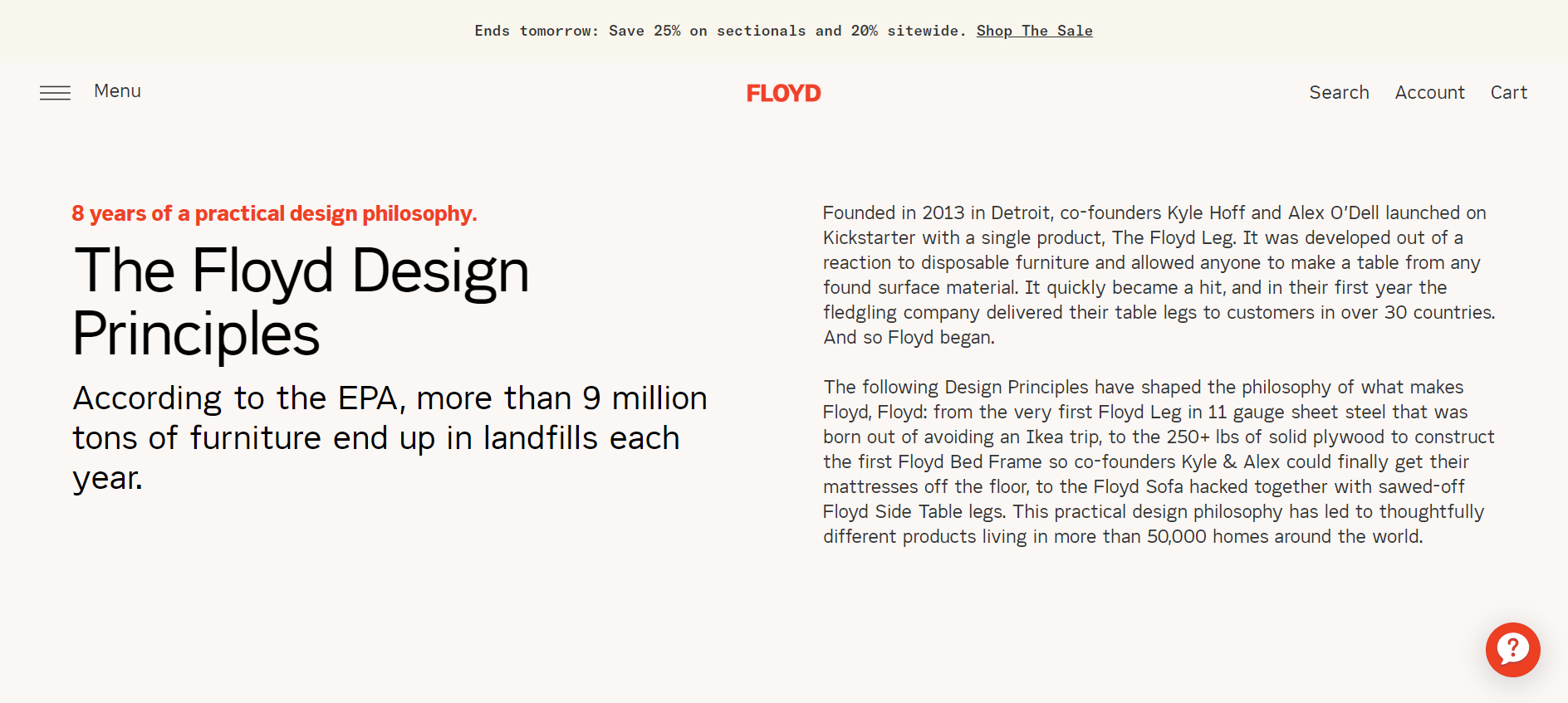
- Year Founded: 2013
- Product Category: Furniture
- What the company is about: Floyd is a DTC furniture brand that focuses on minimalist, modern designs. The company’s mission is to create long-lasting, easy-to-assemble furniture that can be adapted to different living situations. Floyd’s product line includes bed frames, tables, chairs, shelves, and other home accessories, all of which are designed with sustainability in mind.
- Key to Success: Floyd’s success can be attributed to its focus on quality, design, and sustainability. By using high-quality materials and manufacturing processes, Floyd is able to create products that are durable and long-lasting. Additionally, the company’s minimalist designs appeal to consumers who value simplicity and functionality. Floyd’s commitment to sustainability is also a major factor in its success, as more and more consumers are looking for eco-friendly options when it comes to furniture and home accessories.
Sustainable DTC Brands
Trifecta
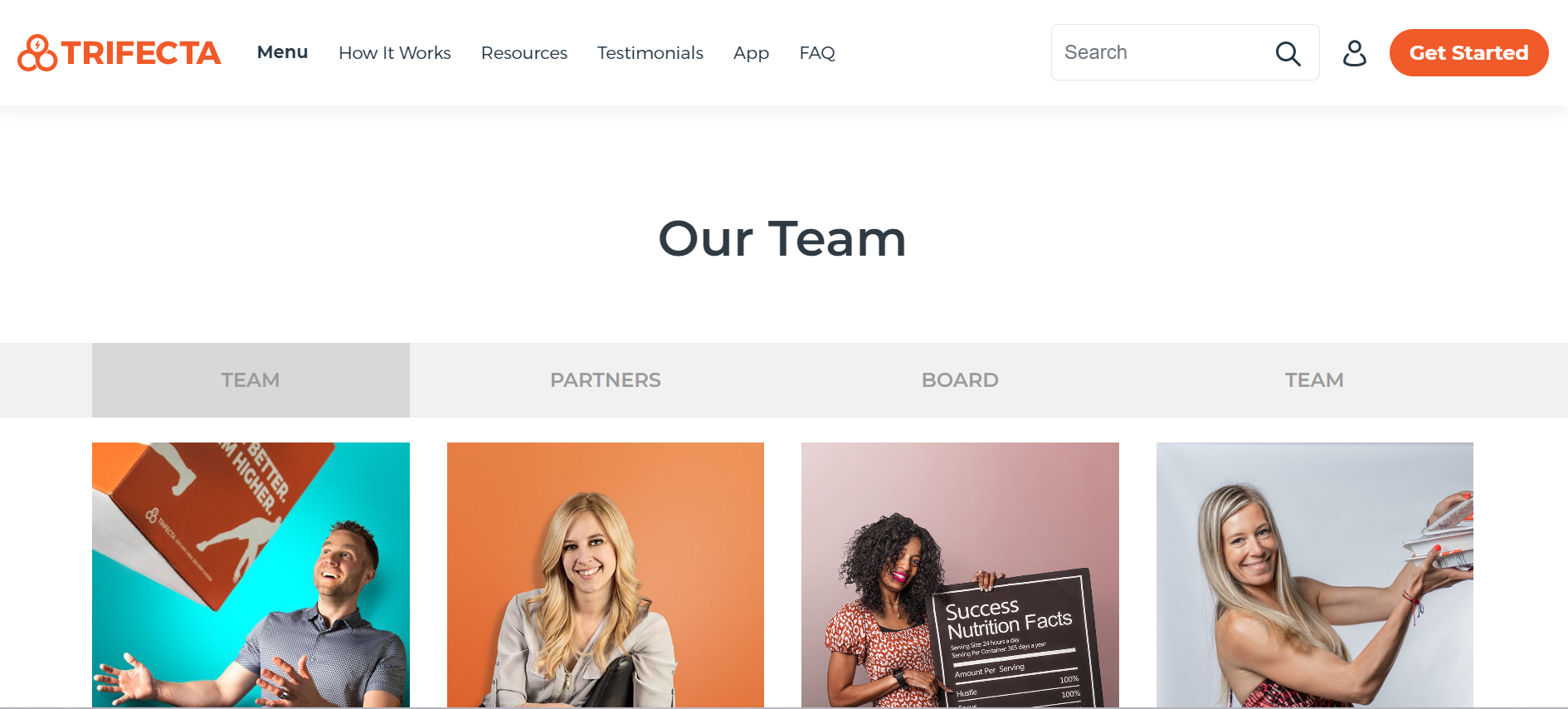
- Year Founded: 2015
- Product Category: Health and wellness
- What the company is about: Trifecta is a DTC brand that offers organic, non-GMO, and sustainably-sourced meals. The company aims to make healthy eating accessible to everyone, while also reducing its environmental impact by sourcing ingredients responsibly and using 100% recyclable packaging. Trifecta’s meals are not only good for you, but also good for the planet.
- Key to Success: Trifecta’s commitment to sustainability and healthy eating has resonated with consumers, leading to their growth and success. Also, the convenience of having healthy meals delivered to your door has proven to be a popular option for busy individuals who prioritize their health.
4Ocean
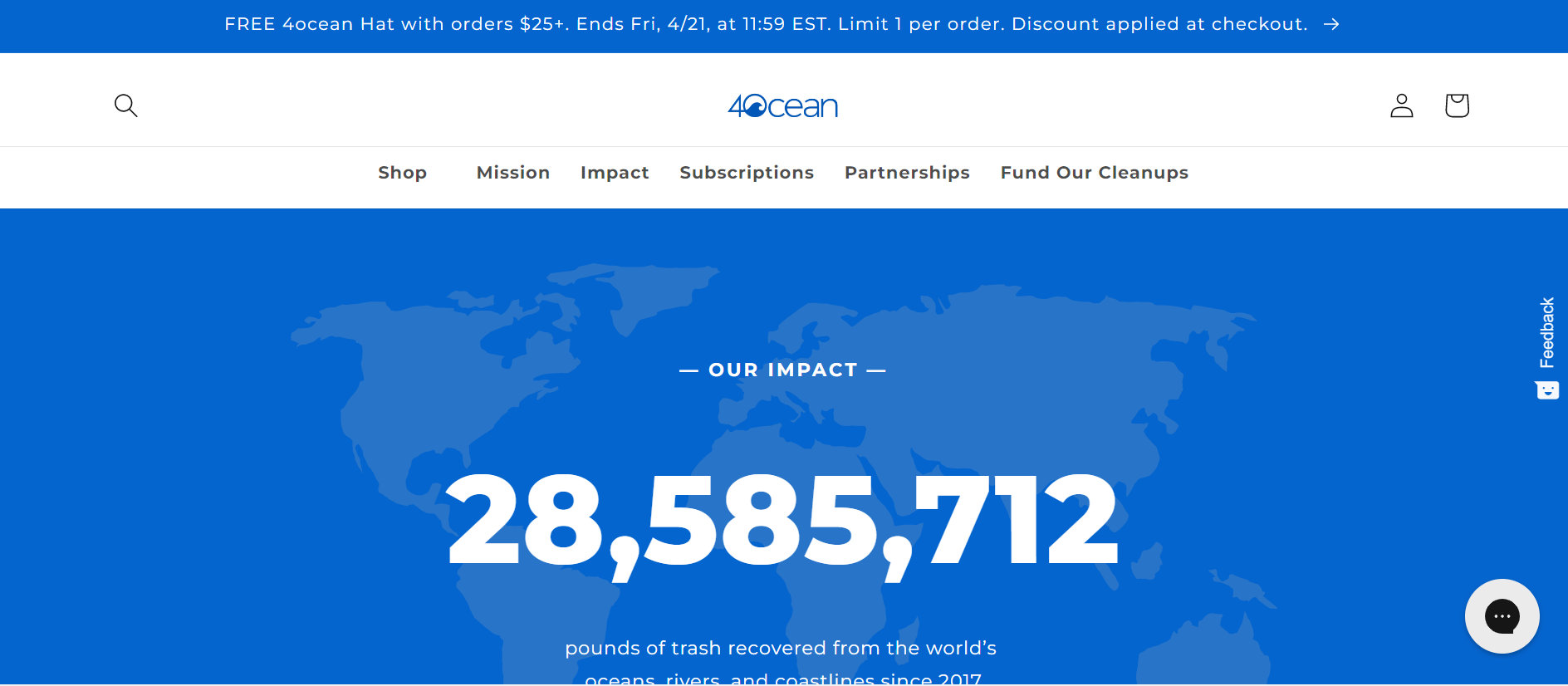
- Year Founded: 2017
- Product Category: Accessories
- What the company is about: 4Ocean is a DTC brand that creates bracelets made from recycled ocean plastic and glass. For every bracelet sold, the company removes one pound of trash from the ocean. 4Ocean’s mission is to create a cleaner and more sustainable future for our planet.
- Key to Success: The dedication of 4Ocean to sustainability and preserving the ocean has struck a chord with consumers, resulting in the brand’s widespread appeal and prosperity. Moreover, the company has adeptly utilized social media to promote its purpose and motivate individuals to make a constructive contribution to the environment.
Haakaa
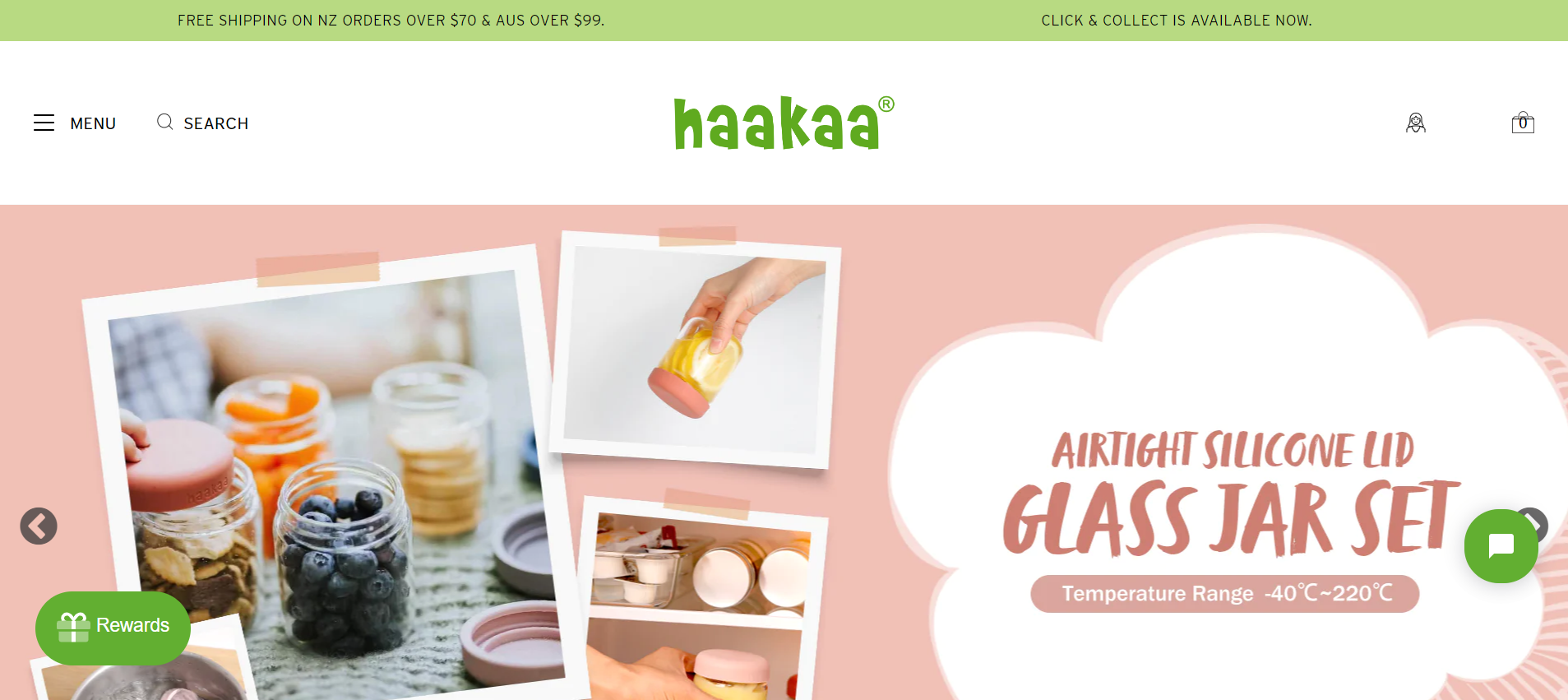
- Year Founded: 2011
- Product Category: Baby products
- What the company is about: Haakaa is a DTC brand that creates baby products made from safe and environmentally-friendly materials. The brand’s products include breast pumps, bottles, and pacifiers, all designed to be reusable and long-lasting. Haakaa’s mission is to create products that are safe for both babies and the environment.
- Key to Success: The emphasis that Haakaa places on producing secure and eco-friendly baby merchandise has struck a chord with parents who value their child’s well-being and the planet. Furthermore, the brand has established a robust online presence and has efficiently leveraged social media to engage and inform its intended demographic.
Misfits Market

- Year Founded: 2018
- Product Category: Grocery
- What the company is about: Misfits Market is a DTC brand that offers “ugly” produce and pantry items that would otherwise go to waste. The company partners with farmers to rescue produce that doesn’t meet traditional retail standards but is still perfectly good to eat. Misfits Market aims to reduce food waste and provide affordable, sustainable grocery options.
- Key to Success: Consumers have responded positively to Misfits Market’s dedication to sustainability and decreasing food waste, which has contributed to their triumph. Moreover, the brand’s provision of reasonably priced organic and sustainable groceries has made healthy and environmentally friendly options more attainable to a larger population.
Get Ready to Become One of the Successful DTC Brands!
The rise of DTC brands has been a prominent trend in recent years, and experts predict that it will continue to grow. To succeed in the DTC market, brands need to focus on the customer, develop a strong brand identity, leverage social media, provide a seamless customer experience, personalize marketing efforts, prioritize sustainability, and build a community. Across various product categories, several DTC brands have already achieved remarkable success, including Stitch Fix and Glossier in fashion and styling, Allbirds and Bombas in footwear, Casper and Burrow in home products, and Trifecta and 4Ocean in sustainable products.
To help launch or grow your own DTC brand, HyperSKU offers an array of branding services to make it successful. Our platform streamlines your supply chain and logistics, reducing costs and increasing efficiency. We offer everything from branding services, product sourcing, and customization to order fulfillment and shipping, providing real-time inventory and order tracking. With HyperSKU‘s support, your DTC brand can focus on delivering high-quality products and exceptional customer experiences while we handle the rest. Let us help you achieve success in the rapidly growing DTC market.

